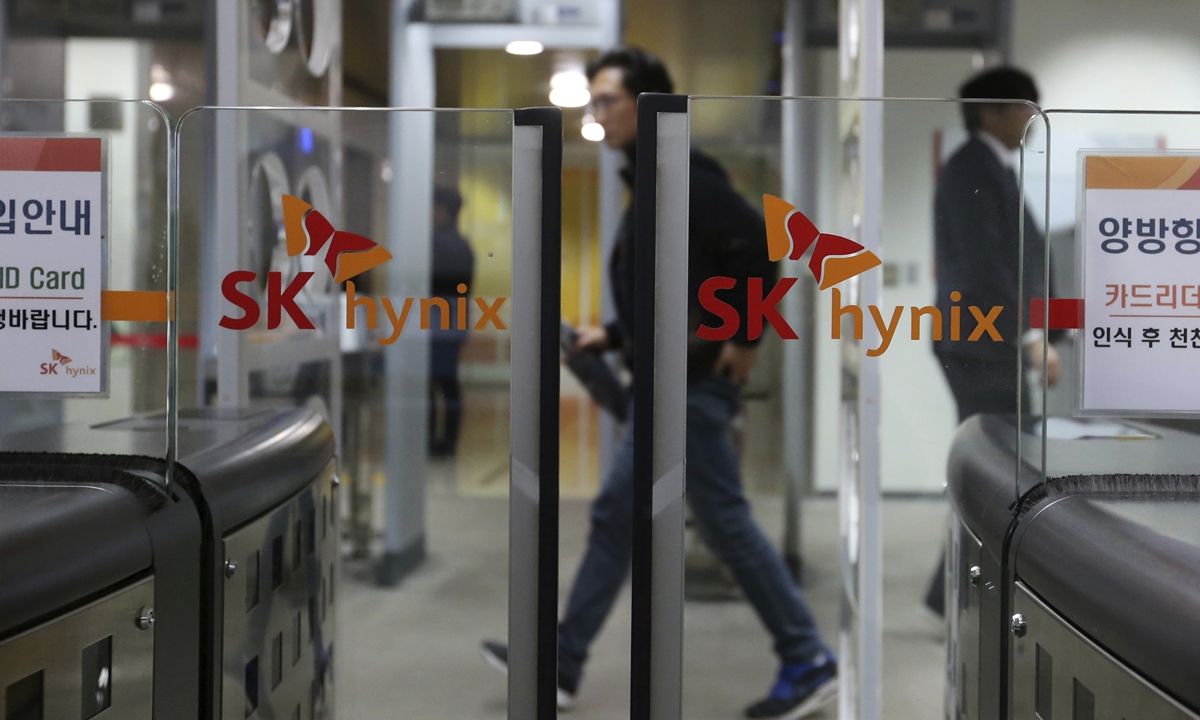SK Hynix applies for license to supply Huawei
Source: Global Times Published: 2020/11/4 19:23:41

File photo: On April 23, 2018, people pass by the logos of SK Hynix Inc. at its office in Seongnam, South Korea.
The world's second biggest memory chip maker SK Hynix has applied for the license to supply to Chinese smartphone giant Huawei under the US export ban, the company told the Global Times.
"The SK Hynix has already requested the license that is necessary for our business with Huawei from the US government," Jin-Seok Cha, vice president and head of finance (CFO) at SK Hynix, confirmed during a conference on Wednesday, but said so far there is no update on the process.
The company had on the same day released its third quarter earnings, which shows a 118 percent growth in its net profit compared to the same period last year, reaching 1,078 billion won ($942.9 million).
Part of the growth can be attributed to orders placed by Huawei before the US ban on September 15, Geng Bo, a vice secretary-general of the China Solid State Lighting Alliance, a semiconductor industry association, told the Global Times.
Before the ban took effect, Huawei had been procuring semiconductors in bulk from its suppliers, Geng said, adding that even without the emergency procurement, Huawei has been an important client for South Korean companies in the semiconductor industry.
"Huawei could account for around 10 percent of the total sales of SK Hynix," Geng said. "SK Hynix' business will face significant challenge if it doesn't obtain a permit from the US to continue the supply."
Other South Korean chipmakers, including the biggest, Samsung Electronics, have also applied for a license to resume their supply to Huawei. According to media reports, Samsung Electronics requested license to supply to Huawei in September, but has yet to obtain the permit.
Although the chipmaker is still left in waiting, Samsung Display, a South Korean maker of screen products, won license from the US government to supply panels to Huawei last week, making it the first company to obtain the permit in Asia.
Some other major suppliers in the world semiconductor industry have also won the permits, including Sony and AMD. Taiwan Semiconductor Manufacturing Company is also reported to have won a permit, but the company has not confirmed so far.
Global Times
Posted in: INDUSTRIES,COMPANIES